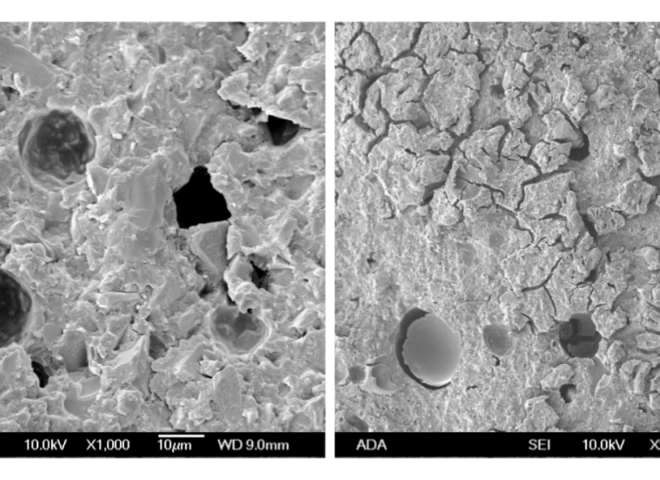Craniofacial Biology
Craniofacial Biology and Bioengineering is a rapidly growing research area focusing on the investigation of tissues found in the craniofacial region, from bone, to cartilage, to enamel. ADA Forsyth researchers working in Craniofacial Biology and Bioengineering use interdisciplinary approaches to discover novel insights into stem cell growth pathways, tooth development and dental properties, biomaterials, regenerative medicine, and multiple craniofacial and dental diseases and disorders. Our research places equal emphasis on gaining new biological understanding and technological development. The goal of this work is to identify new therapeutic strategies, develop targeted treatment approaches, and prevent disease.
Potential solutions found in this research area have far-reaching public implications. Beginning in the womb, our scientists are seeking ways to develop targeted therapeutics for birth defects. We are also investigating the power of stem cells in preventing and treating a variety of diseases, from arthritis to oral cancer. The utilization of teeth as biomarkers can help in diagnosing disease both in the oral cavity and beyond. Lastly, the development of smart biomaterials using cutting edge technologies promises to provide longer-lasting, more accessible dental fillings to patients.
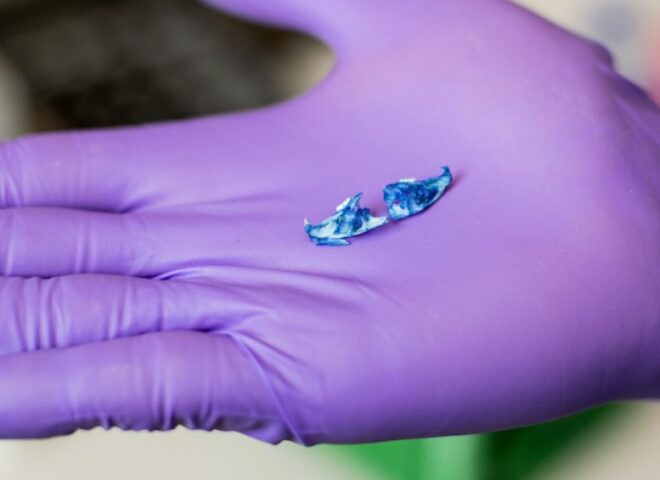
Stem Cell Growth Pathways
Understanding the genetic and molecular mechanisms that govern stem cell growth and differentiation in craniofacial tissues can help unravel the complexities of tissue formation and maintenance. ADA Forsyth researchers seek to use information gained from stem cells to address conditions such as craniosynostosis, temporomandibular joint disorders, tooth agenesis, alveolar bone resorption, osteoarthritis, and osteoporosis. Exploring the factors that regulate stem cell behavior, including epigenetic influences and signaling pathways, helps lay the foundation for innovative therapies to promote craniofacial health and disease prevention.
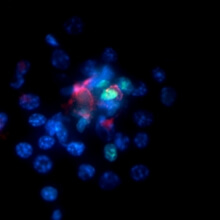
Tissue Regeneration
Research at ADA Forsyth is pioneering regenerative approaches to restore craniofacial tissues impacted by congenital defects, injuries, and diseases- such as bone and cartilage. This includes developing therapies for birth defects like orofacial clefts and neural tube abnormalities, as well as creating biologically functional alternatives to root canal therapy. Studies also focus on the inflammatory and genetic factors influencing oral cancer, enabling the design of targeted and effective therapies. By combining a variety of disciplines and approaches, ADA Forsyth is driving breakthroughs in tissue regeneration and advancing solutions to improve patient outcomes.
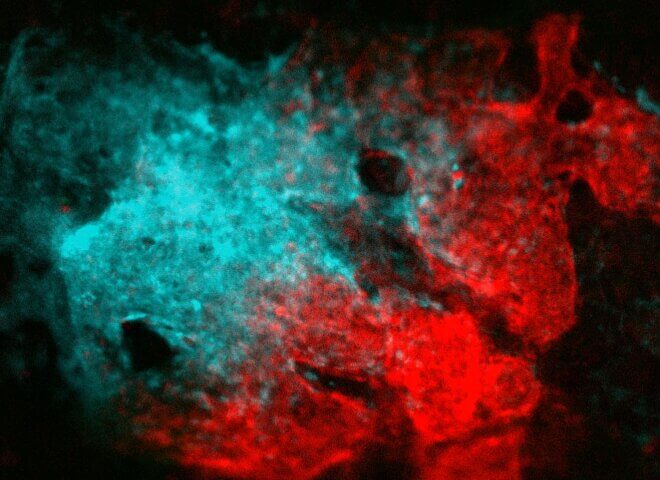
Tooth Formation, Teeth as Biomarkers
Information on a tooth’s susceptibility to decay can be gained by understanding the processes of tooth germ and root development, tooth mineralization, and the interaction between crystals and protein in enamel. Genetic, environmental, and stress factors that influence tooth formation and mineralization processes allow AFI scientists to leverage the use of teeth as biomarkers and develop materials that enhance enamel hardness and resistance to decay. These innovations aim to integrate health history and improve oral health outcomes for diverse patient populations.
The study of mineralized tissue at AFI goes beyond teeth. ADA Forsyth researchers also investigate mechanisms behind bone weakness in diabetes and develop novel treatments for this condition utilizing dopamine receptor inhibitors. These treatments could lead to improved bone health and reduced fracture risk in diabetic patients.
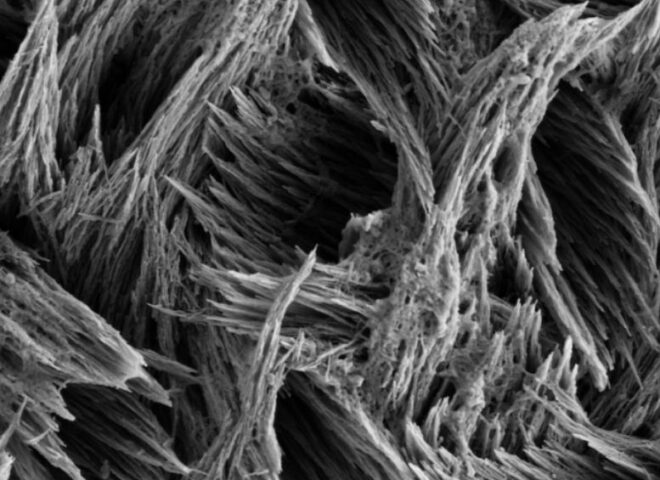
Smart Materials and Regenerative Medicine
Innovations in biomaterials and regenerative medicine revolutionize dental, orthodontic, and orthopedic treatments. ADA Forsyth researchers pioneer the development of smart materials that mimic natural tissues and enhance biocompatibility. These materials integrate advanced drug delivery systems, offering promising solutions for craniofacial tissue repair and regeneration. For example, our scientists have engineered a molecule with bone-targeting and extended circulation properties, demonstrating its ability to promote bone regeneration in mice, particularly during space flight conditions. This discovery suggests a promising potential treatment for osteoporosis, bone loss due to factors like aging, or prolonged periods of reduced physical activity.
In another study, we developed a pH-responsive, acid-triggered drug delivery system. This system transforms broad-spectrum antimicrobial agents, such as chlorhexidine, into a targeted-treatment agent (t-TAB) specifically designed to inhibit cariogenic, acid-producing bacteria. By delivering the drug locally and avoiding systemic antibiotic use, this targeted approach minimizes overall drug usage and reduces the risk of developing antibiotic resistance.
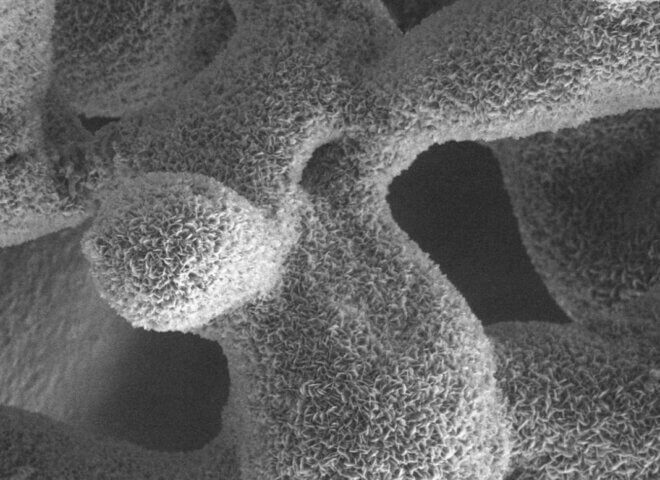
Functional Biomaterials
Cutting-edge technologies such as AI and machine learning can be harnessed to enhance durability and biocompatibility in biomaterials development. Harnessing these technologies can help offer safer, more effective, and personalized treatments in dental and orthodontic care. Currently, AFI scientists are developing next-generation dental restoratives to replace amalgam and traditional composite fillings. These innovative materials aim to treat cavities using durable, antimicrobial, and self-repairing properties, capable of preventing cariogenic attacks and autonomously responding to and repairing unexpected damage in real-time, without human intervention.
Pushing the boundaries of material science and biomedical engineering, ADA Forsyth drives innovation in oral health to improve patient care and outcomes globally.
